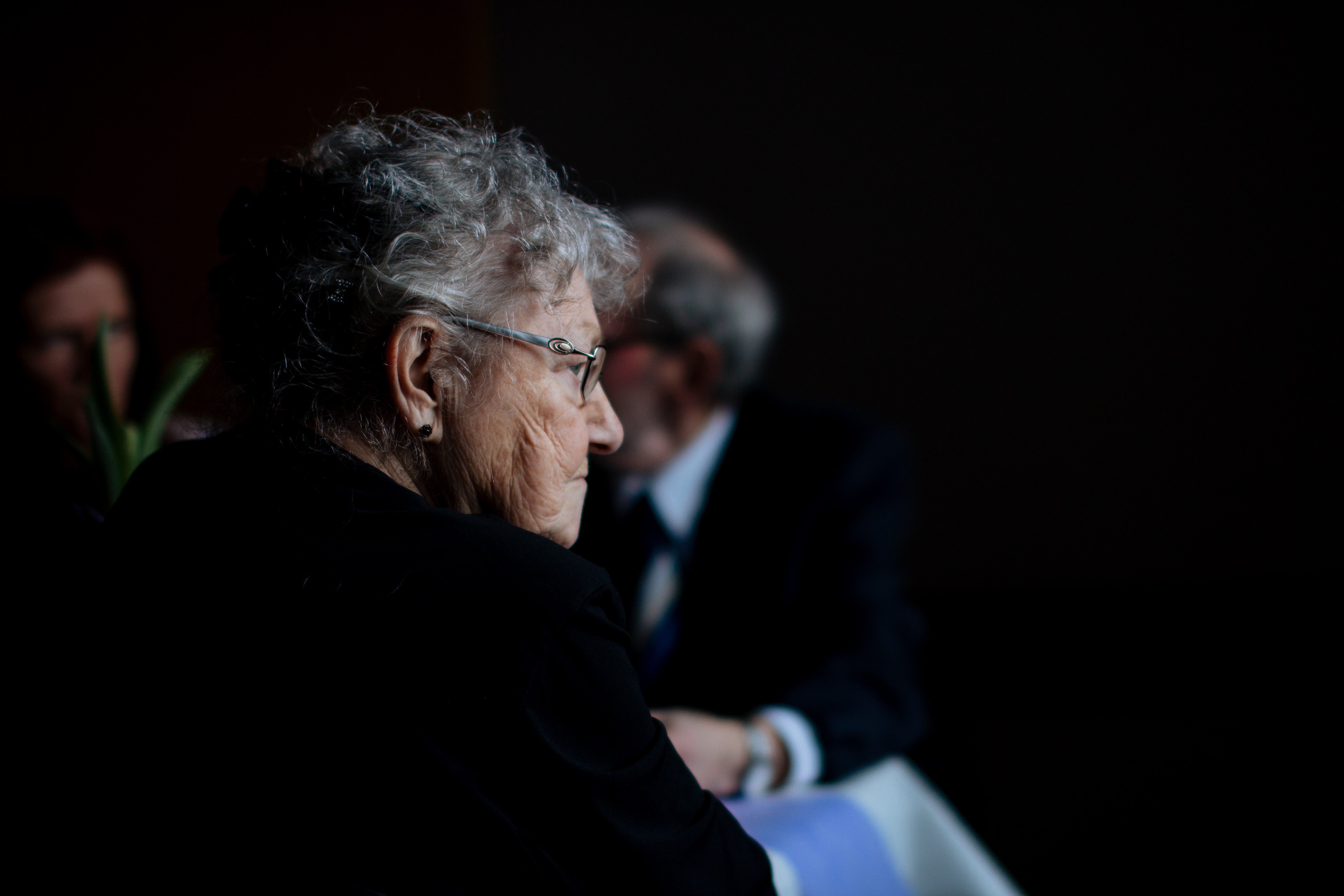What people fail to understand about the dangers of loneliness

- Even before the pandemic, there was growing concern about the rise of loneliness.
- After Covid-19, the problem is impossible to ignore. Social scientists have quantified the physical effects of being lonely, and the upshots are alarming: social isolation has an effect on health comparable to that of high blood pressure, obesity, or smoking.
- As philosopher Kieran Setiya argues in this excerpt adapted from his 2022 book Life is Hard: How Philosophy Can Help Us Find Our Way, they point to side-effects of being lonely, not the harm of loneliness itself.
For more than seventy years, we’ve been warned about a looming epidemic of loneliness, from David Riesman’s The Lonely Crowd in 1950 to The Lonely Century, published by Noreena Hertz last year. If the evidence was inconclusive before Covid-19, now it is impossible to ignore: we are living in the aftermath of unprecedented social isolation.
The social effects of the pandemic are pervasive and slow to fade: habits of socializing have shifted, as people meet online and work from home, and the muscle of in-person interaction withers. What do we lose when life alters in this way and what can we do to get it back?
Loneliness is recognized, increasingly, as a problem in public health. Social scientists have quantified the physical effects of feeling lonely, and the upshots are alarming. Writing with William Patrick, the psychologist John Cacioppo summarized briskly: “social isolation has an impact on health comparable to the effect of high blood pressure, lack of exercise, obesity, or smoking.”
But there is a way in which such arguments miss the point. They focus on the side-effects of being lonely, not the harm of loneliness itself. We could ask instead how it feels to be lonely. Functional MRIs show that the region of the brain activated by social rejection is the same as that involved in physical pain. But we don’t understand why loneliness is bad for us if all we can say is that it hurts. Why does it hurt? And what does that pain tell us about how to live?
These are philosophical questions, not social-scientific ones. They are about the nature of human flourishing and the role of sociality in shaping it, questions that go back to the ancient Greek philosopher Aristotle, who devotes two books of his Nicomachean Ethics to “philia,” which is commonly translated “friendship.” Aristotle saw that human beings have social needs, and when those needs are frustrated, we suffer. “Loneliness” names our suffering; and what we need is, basically, friends.
To understand what is bad about loneliness, and how it can be remedied, we need to understand why friendship is good.
Aristotle’s vision of philia gets something deeply right. We moderns are inclined to make distinctions, distinguishing friends from family and romantic partners, even “friends with benefits.” Aristotle’s view is more inclusive: he counts familial and romantic relationships as forms of friendship, too. They are central to our lives as social animals, fending off loneliness.
But Aristotle also made mistakes. His paradigm of philia is the friendship of just, brave, temperate, magnanimous men, who love one another for their good character. True friendship, like true virtue, is accordingly rare. Archetypes of male bonding in the Iliad, Achilles and Patroclus may love each other as true friends. But you and I are probably out of luck.
Thank goodness, it’s not so. Friendship may be hard, but not in the way that Aristotle thinks. When I think of my friends, there are some I would call “virtuous” or “admirable”; others not so much. But I am sure our friendships are real. For Aristotle, friendship is meritocratic: it’s conditional on virtue. He thinks friends should be fickle, in a way. They should drop you, and stop loving you, the moment you lose the virtues that make you friends. That’s pretty much the opposite of the truth. I’m not saying that friendship must be unconditional—but it can be. We all love family members, and even friends, that we don’t like.
Aristotle’s oversight turns on his argument that loving someone for himself is loving him for his character. That just isn’t so. You are not your character, an assemblage of quirks and traits, virtues and vices, all of which you can outgrow. You are a particular, concrete human being, not defined by any qualities you have. Being loved for yourself, therefore, is not being loved for your virtues, and being valued as a friend is not the same as being admired. In fact, it’s the other way around. Being loved for yourself is being loved precisely not for any qualities by which love must be earned.
The value of friendship flows, ultimately, from the unconditional value of the people who are friends. Pick a friendship that matters in your life: it matters, in the end, because your friend matters and so do you. True friends cherish each other, not just the friendship that connects them.
This contrast may seem subtle, but it shows up in the ordinary frictions and resentments of friendship. When I visit you in hospital, there’s a difference between doing so for the sake of our friendship and doing so for your sake. I imagine you’d be hurt to learn that I came to visit you only to maintain the relationship, or because friendship demands it, not out of direct attachment to you.
This way of understanding friendship turns on a deeper shift in how to think about the value of human life. It’s a defining insight of Enlightenment philosophy that people matter in themselves, regardless of their merits. The philosopher Immanuel Kant called this value “dignity” as opposed to “price.” It is our dignity that love celebrates and loneliness shrouds—a dignity that cries out for respect.
In this way, friendship is entangled with morality. There can be respect without love; and familiarity may breed contempt. But respect and love acknowledge the same value. As the philosopher David Velleman writes, respect is a “required minimum” and love an “optional” but apt response to the irreplaceable worth of a human being.
These facts explain why loneliness hurts so much. When we are friendless, our value goes unrealized. Our worth as a human being is unappreciated, unengaged. To be friendless is to feel oneself shrinking, disappearing from the human world. We are made for love; and we are lost without it.
This is why we need to address the social problem of loneliness. And it has practical upshots for how: advice for dealing with loneliness predicted by philosophy and confirmed by social science. In John Cacioppo’s words, while loneliness “feels like … a hunger that needs to be fed—this ‘hunger’ can never be satisfied by a focus on ‘eating.’ What’s required is to step outside the pain of our own situation long enough to “feed” others.” The way out of loneliness runs, ironically, through attending to the needs of other people, tracing the path from respect and compassion to love.
Even when it doesn’t end in a relationship, paying attention to other people—affirming the value of their lives, not one’s own—makes loneliness less harsh. My response to pandemic isolation was a cliché: I started a podcast, Five Questions, in which I ask philosophers five questions about themselves, from the impertinent—“Do you really believe your philosophical views?”—to the risky—“What are you afraid of?” The point was not to forge new relationships but to spend time really listening. After focusing on someone else for half an hour, and editing for an hour more, I would feel less lonely for days.
Interactions like these acknowledge the reality of other human beings and invite them to acknowledge ours, diminishing the pain of loneliness. This may seem a far cry from the deep connection you crave when you are lonely. But the difference is one of degree or dimension, not kind. Respect, compassion, and love are all ways of asserting that someone matters; they are melodies sung in the same key. What is at stake in loneliness is our recognition of the value of every human being, including us.





